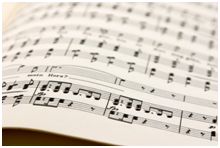Is Peace Possible?
Recently, I heard a concert with music from the era of the swing bands. Having been a teenager in the ’40s, I thoroughly enjoyed the segment, singing along with the chorus: “Ain’t She Sweet,” “When You’re Smiling,” and then a World War II song, “The White Cliffs of Dover”:
The white cliffs of Dover,
Tomorrow,
Just you wait and see…..
There’ll be love and laughter,
And peace ever after,
Tomorrow,
When the world is free.
As I sang those words, I suddenly felt a deep sadness: It didn’t happen, that “peace ever after.” And it hasn’t happened yet. It wasn’t a war to end all wars. We are still sending our young men and women to war.
That time, back in the ’40s was a simpler time. I remember the hope I felt then, as a person approaching young adulthood-the hope, the optimism, the strong sense of patriotism I experienced, marching with my friends in the V-J Day parade (Victory over Japan). I was proud of my country and proud of my brothers-one overseas in Europe and the other preparing to go there, and I looked forward, young as I was, to “No More War.”
I also remember, years later, another marching experience during that “window of opportunity” between the events of September 11, 2001 and the US invasion of Afghanistan. We had started with a prayer service in a church in downtown Manhattan, and then walked up the East Side to the United Nations. We carried pictures of mothers and children that day, and placards saying “NO MORE WAR” and “WAR IS NOT THE ANSWER.”

But America did invade Afghanistan a few days later (ten years ago, in fact, on October 7, 2001) and we are still trying to end that war, the longest in our history. War does seem to be the perceived answer, but it’s easy to start and hard to finish. In fact, violence of all kinds continues to be reported in our newspapers and portrayed in movies and television shows – domestic violence, sexual violence, racial violence-all kinds of violence, and far too prevalent.
Thank God for peaceful demonstrations in the Martin Luther King tradition, which is also a growing phenomenon, and for organizations like Pax Christi and September 11th Families for Peaceful Tomorrows, which encourage us to find other ways than war and violence to respond to our grief in times of loss. (www.peacefultomorrows.org, www.paxchristiusa.org).
May we continue to help build “peaceful tomorrows” in our homes, our communities, our country, and our world.
Or, as the concert ended: “Let there be peace on earth, and let it begin with me.”
Mary Dowd, O.S.U.
If you wish to respond to this reflection, please email eastprov@atgnet.com
